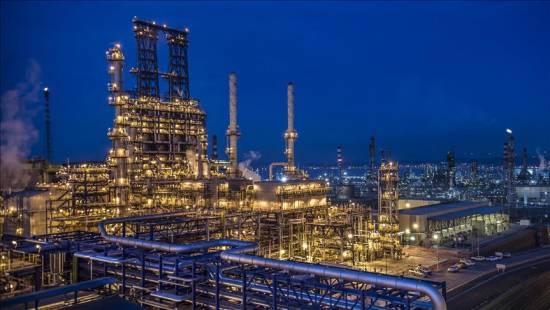Oil prices increased on Tuesday over tight supply concerns while demand side woes capped some of the gains as China tests millions and puts thousands in lockdown as part of the country's zero-COVID policy.
International benchmark Brent crude was trading at $123.36 per barrel at 0710GMT for a 0.89% increase after closing the previous session at $122.27 a barrel.
American benchmark West Texas Intermediate (WTI) was at $121.94 per barrel at the same time for a 0.83% gain after the previous session closed at $120.93 a barrel.
Randall Mohammed, former vice president of energy for Ahart Solutions International and energy market commentator said news of the Iran nuclear deal receding and disruptions in Libya exerted upward pressure on prices while the re-implementation of COVID lockdowns in China prevented the prices from increasing further.
Even without a significant resurgence in Chinese demand, the European ban on Russian oil is projected to restrict the market further amid the bloc’s ongoing efforts to find different supply sources.
“As I've pointed out the lowest hanging fruit is allowing Iranian oil back onto the market. There's approximately 100 million barrels of floating oil ready for trading. It should be noted that Iranian crude is similar to Urals, the main export from Russia”, Mohammed said.
In an attempt to find supply alternatives for the EU which is planning to phase out Russian crude oil supplies in six months and the supply of refined products by the end of the year, the US has started negotiations to allow long-sanctioned Venezuelan crude to flow into Europe.
“Venezuelan crude is heavy sour which is more expensive to refine,” Mohammed warned.
Meanwhile, Iran nuclear talks to bring country's oil exports back to market lifting US sanctions on the country have come to a dead end after Iran disconnected some UN nuclear watchdog cameras monitoring its nuclear site.
The country’s foreign ministry spokesman Saeed Khatibzadeh, however, said all measures it has taken to roll back on its commitments under the 2015 nuclear deal with world powers are technically 'reversible'.
Increasing the supply concerns and fanning the prices, Libya's oil production is declining at a rate of 1.1 million bpd, according to the country's oil minister, Mohammed Aoun, who also stated that nearly all of the country's oil fields have been shut down./aa


